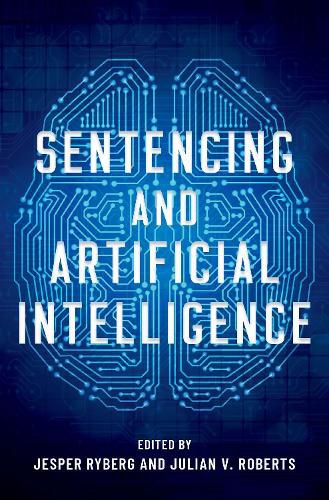Readings Newsletter
Become a Readings Member to make your shopping experience even easier.
Sign in or sign up for free!
You’re not far away from qualifying for FREE standard shipping within Australia
You’ve qualified for FREE standard shipping within Australia
The cart is loading…






The first collective work devoted exclusively to the ethical and penal theoretical considerations of the use of artificial intelligence at sentencing Is it morally acceptable to use artificial intelligence (AI) in the determination of sentences on those who have broken the law? If so, how should such algorithms be used–and what are the consequences? Jesper Ryberg and Julian V. Roberts bring together leading experts to answer these questions. Sentencing and Artificial Intelligence investigates to what extent, and under which conditions, justice and the social good may be promoted by allocating parts of the most important task of the criminal court–that of determining legal punishment–to computerized sentencing algorithms. The introduction of an AI-based sentencing system could save significant resources and increase consistency across jurisdictions. But it could also reproduce historical biases, decrease transparency in decision-making, and undermine trust in the justice system. Dealing with a wide-range of pertinent issues including the transparency of algorithmic-based decision-making, the fairness and morality of algorithmic sentencing decisions, and potential discrimination as a result of these practices, this volume offers avaluable insight on the future of sentencing.
$9.00 standard shipping within Australia
FREE standard shipping within Australia for orders over $100.00
Express & International shipping calculated at checkout
The first collective work devoted exclusively to the ethical and penal theoretical considerations of the use of artificial intelligence at sentencing Is it morally acceptable to use artificial intelligence (AI) in the determination of sentences on those who have broken the law? If so, how should such algorithms be used–and what are the consequences? Jesper Ryberg and Julian V. Roberts bring together leading experts to answer these questions. Sentencing and Artificial Intelligence investigates to what extent, and under which conditions, justice and the social good may be promoted by allocating parts of the most important task of the criminal court–that of determining legal punishment–to computerized sentencing algorithms. The introduction of an AI-based sentencing system could save significant resources and increase consistency across jurisdictions. But it could also reproduce historical biases, decrease transparency in decision-making, and undermine trust in the justice system. Dealing with a wide-range of pertinent issues including the transparency of algorithmic-based decision-making, the fairness and morality of algorithmic sentencing decisions, and potential discrimination as a result of these practices, this volume offers avaluable insight on the future of sentencing.